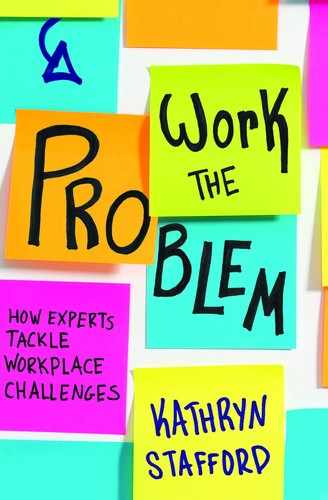TAKE 2
Commentary by Vivian Blade
Vivian Blade is a talent management strategist, author, keynote speaker, leadership development trainer, and executive coach.
One of the biggest challenges facing Open Wide Media is the changing environment it operates in. The workplace now holds four generations with varying values and expectations. And the publishing industry is also different—readership has grown significantly in the digital and mobile platforms. However, Open Wide Media has been slow to transition in both of those areas. What are the implications? If the company is not innovative with its products, especially in the digital and mobile space, it will stagnate and lose market share and revenue. If it doesn’t innovate its workplace, the company will fail to attract and retain the talent it needs to remain competitive.
The organization’s structure—a small number of employees, temporary entry-level roles, and long-tenured senior-level employees—does not provide opportunities for personal growth and development.
Open Wide Media’s leaders don’t realize that pay is not the only motivator. They probably don’t realize that employees like Claire can be motivated by factors such as meaningful work, early advancement, and work–life balance. They also must understand that employee retention is not one size fits all. They can research generational differences in the workplace using the many books and online resources available on the topic. Resources such as the “Table of Diversity” will help them explore the many dimensions of what makes people who they are (Miles-McDonald 2017). They also should talk with employees to find out what’s important to them and to understand their career aspirations. With these insights, the senior team will be more equipped to understand how these influences apply to their business, and what actions they should take in response.
This disconnect is, in part, why Claire is so frustrated. Although Dan and Vicki have given Claire a lot of responsibility, allowing her to gain administrative experience she may not have gotten in a larger company, she feels stuck and undervalued. Vicki has allowed scope creep to occur with Claire’s job responsibilities; she did not intentionally design Claire’s role, periodically re-evaluate her workload, or even compensate her accordingly. She isn’t fully utilizing the skills and talents that Claire possesses. Management is missing this opportunity to take someone who is committed to the company, and invest in her further development. If they do nothing, they will lose her.
The question management should be asking is, “Can we afford to lose Claire?” Consider the cost of turnover if Claire leaves. Will the offer to increase her salary be enough? Can they afford not to consider her proposal and promote her? They are already willing to increase her pay, so what is the risk otherwise? What are the benefits if her idea works?
Claire was smart to develop an idea for her next role. She realized that she couldn’t wait around for someone else to manage her career. But, she should be prepared to support her recommendation with information on how the industry changes influence the need for the organization to change. She must also be able to demonstrate how this new role can work, given the constraints of the organization. Although Claire may think her proposal is well thought through, she should be somewhat flexible, taking into account the overall business needs and timing required to make changes.
In the meantime, she should continue looking for other opportunities outside the company. She should research salaries, using resources such as Salary.com, PayScale.com, or Glassdoor.com, to obtain data around what she should expect to be offered given the role, her skills, and her experience.
Claire may be forced to make some tough decisions about whether to stay or leave Open Wide Media. She should create a career plan now that will help her in the decision process later. How does this new role help her advance? How does it fit into her long-term career plan? What experience will she gain and how will it help her advance to the next level?
Like Claire, Open Wide Media should develop a long-term strategy. With the way the organization is structured—depending heavily on interns for production, and a focus on meeting current deadlines rather than projecting out to future issues—staff don’t have the capacity to think strategically about what’s next. The lack of a strategic plan, and the staff to focus on it, is a huge risk for Open Wide Media. Staff will miss the trends evolving around them and steadily fall behind.
Dan realizes that flat growth and unpredictable revenue have created volatility in the budget, making it tough to manage. But his ideas for the custom publishing projects are just short-term revenue solutions. They don’t address what is needed for long-term, sustainable growth. And the organization’s leaders aren’t taking the time to figure this out.
Dan, Vicki, Rebecca, Jack, and Betsy must seriously consider the changes in the industry and revenue sources. They need to develop a strategic plan to ensure they stay competitive in the long run. Most immediately, Dan has to come up with some new, long-term ideas to bring in more revenue. Perhaps he is overwhelmed and has difficulty seeing beyond his own proposal, and feels threatened by the change suggested by Claire, who is committed and passionate enough to propose an option that could help the company and herself to grow. Is there an opportunity for both ideas to work?
Opportunities are ripe for both Open Wide Media and Claire. The decisions each make and the mindset with which they pull these opportunities together will result in either short-term, unsustainable bandages or long-term growth.
